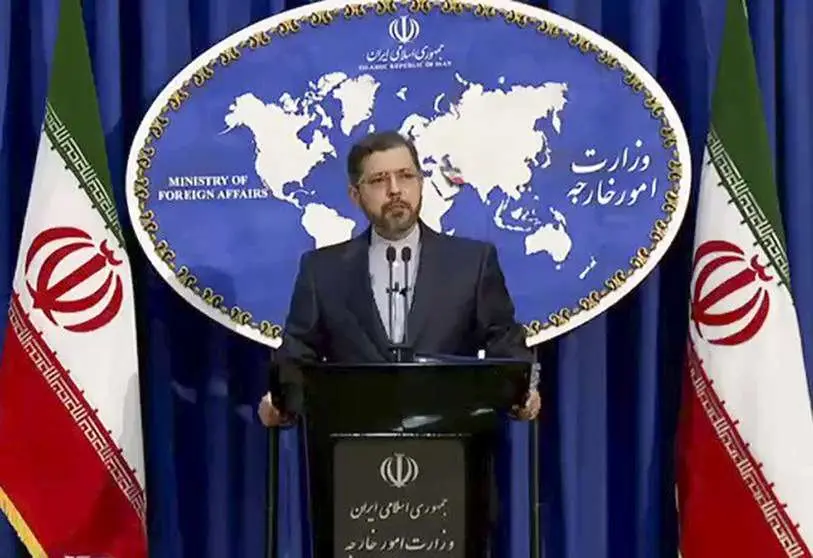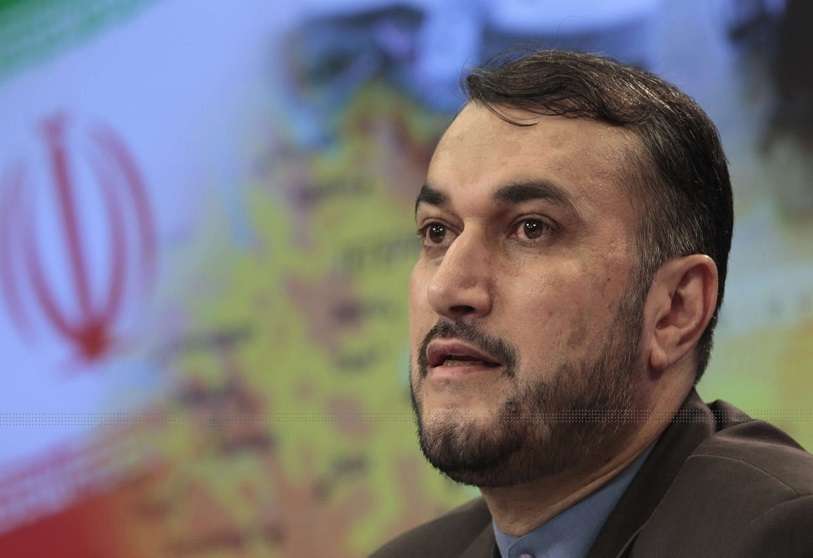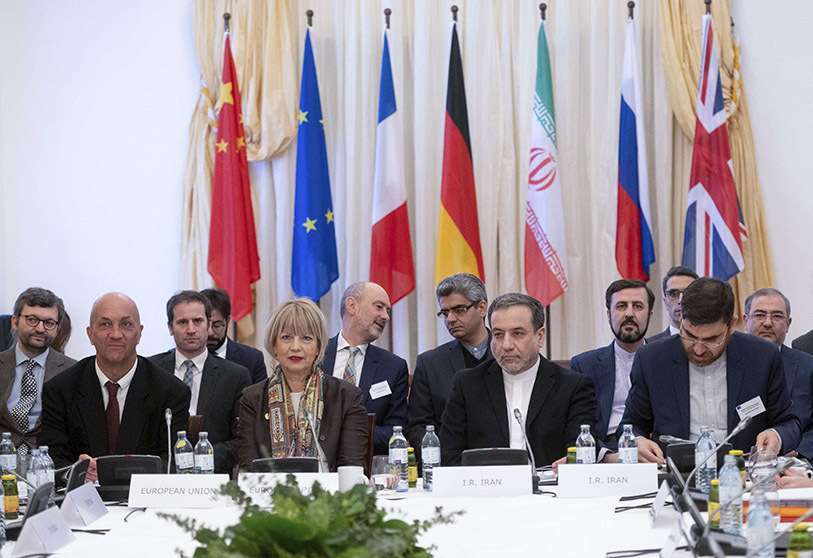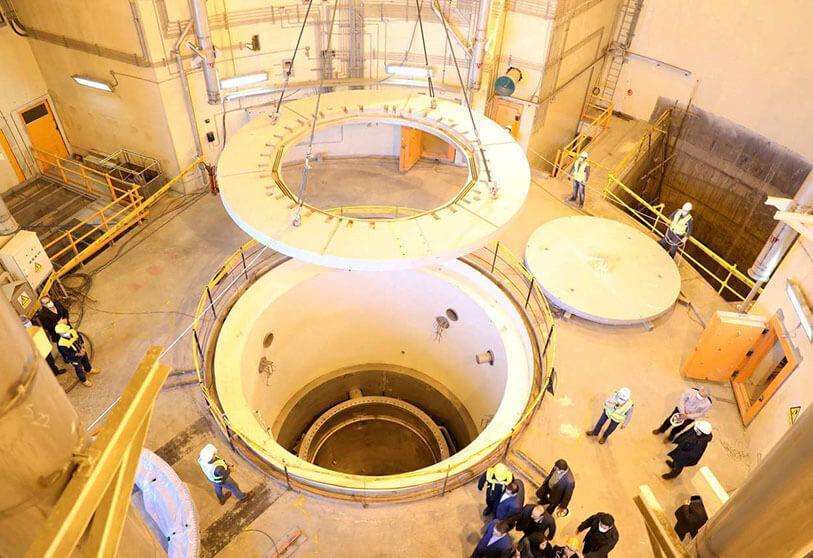Iran postpones resumption of nuclear deal until November

Iran is threatening to return to the negotiating table in Vienna. The Persian regime's top officials have been pointing in this direction with their statements in recent weeks, although so far without any facts to back up the change of position. Meanwhile, Washington's patience is eroding after months of paralysis in the reactivation of the Joint Comprehensive Plan of Action (JCPOA), the nuclear agreement that limited Iran's nuclear programme until 2018.
When asked at a press conference about the declarations of Foreign Minister Hossein Amirabdollahian, who promised an imminent return to negotiations on the sidelines of the UN Assembly, the ministry's spokesman, Said Khatibzadeh, announced that this return would take place once the review of the six previous rounds of talks, prior to the inauguration of President Ebrahim Raisi, in office since August, had been completed. And that this process would not exceed 90 days.
The signs point to a resumption of negotiations in November. This is what Khatibzadeh himself said, who also assured Iran's continuity in the talks. The spokesman stressed the change in the Iranian negotiating team in Vienna, hence the need to examine what was agreed by the previous team, but assured that they would not waste "one hour" in adhering to the terms of the agreement after its reactivation.

Before doing so, however, the spokesman demanded that the US provide a factual demonstration that "its approach and action have changed", as reported by IRNA. A condition that, in the words of the foreign minister, includes the lifting of the blockade of some 10 billion dollars belonging to Iran and frozen by Washington. Amirabdollahian conveyed this request to the intermediaries of the US delegation to the UN General Assembly.
On the same day, the minister declared that he would not meet "for coffee", but that his country was serious about resuming the nuclear deal. A stance viewed with suspicion because of his continued procrastination in the negotiations, which have run aground since June. As a justification for this last point, Amirabdollahian explained that he had not yet finished putting together his negotiating team, and that he was finalising the profiles that would make up the new Iranian delegation in Vienna.
The head of US diplomacy, Antony Blinken, threatened Tehran that Washington's outstretched hand "is not indefinite". One of the main axes of the Biden Administration's foreign policy is the reactivation of the nuclear agreement with Iran, signed in 2015 and dissolved in 2018 after the abrupt withdrawal of former President Trump. The White House considers it a priority to reduce Iran's nuclear capacity, which is at the most advanced stage in its history, and thus mitigate the regional threat.

The terms of the pact obliged Tehran to completely dismantle its nuclear programme and offer guarantees of full compliance with the agreement. Iran was to ship 97 per cent of its fuel out of the country, curb production of enriched uranium and plutonium, and allow regular inspections of the Fordow, Natanz and Arak facilities. In return, the international community would ease the sanctions regime that has burdened the Persian economy to the tune of $100 billion between 2012 and 2014.
The deal would have frozen Iran's nuclear production for at least the next 10 years, according to experts, as many of the restrictions defined by the JCPOA had an expiry date. However, the unilateral US withdrawal brought all progress to a screeching halt and prompted Tehran to restart its programme. Washington reinstated sanctions and Iran continued to enrich uranium above permitted levels of around 60 per cent purity.
During this period, only the activity of the UN Atomic Energy Agency (IAEA) has managed to monitor Iran's nuclear facilities, despite the restrictions imposed by the Persian authorities. Its work, albeit limited, has provided insight into the country's advanced nuclear development.

Iran hopes that a return to the JCPOA will unfreeze the billions of dollars that Washington has blocked in third country financial institutions. The United States, for its part, aims to put an end to Iran's nuclear weapons proliferation. However, neither has any guarantee of compliance. Not only that, but there is mutual distrust between the two, which has been aggravated since the arrival of Raisi, a member of the radical wing of the Persian regime.
Asked about a possible Iranian 'Plan B' in case the JCPOA is not reactivated, spokesman Khatibzadeh stated that no credible government in the world would not consider different alternatives, and that it was plans 'B' and 'C' that gave his interlocutors food for thought. However, he qualified that all should focus on "plan A". Meanwhile, Washington is working on an alternative plan in case it decides to move forward with its programme and not return to negotiations, according to the Associated Press.
The EU's position is clear. The EU's High Representative for Foreign Policy, Josep Borrell, urged the parties to comply again with the terms of the agreement, in the case of the United States with the lifting of sanctions; in the case of Iran, with compliance with the limits on its nuclear programme. "It is crucial to resume negotiations in Vienna as soon as possible and from where we left off on 20 June", the Spanish diplomat said.










